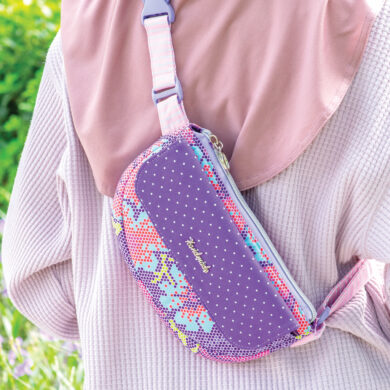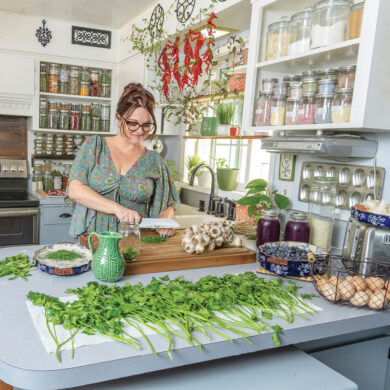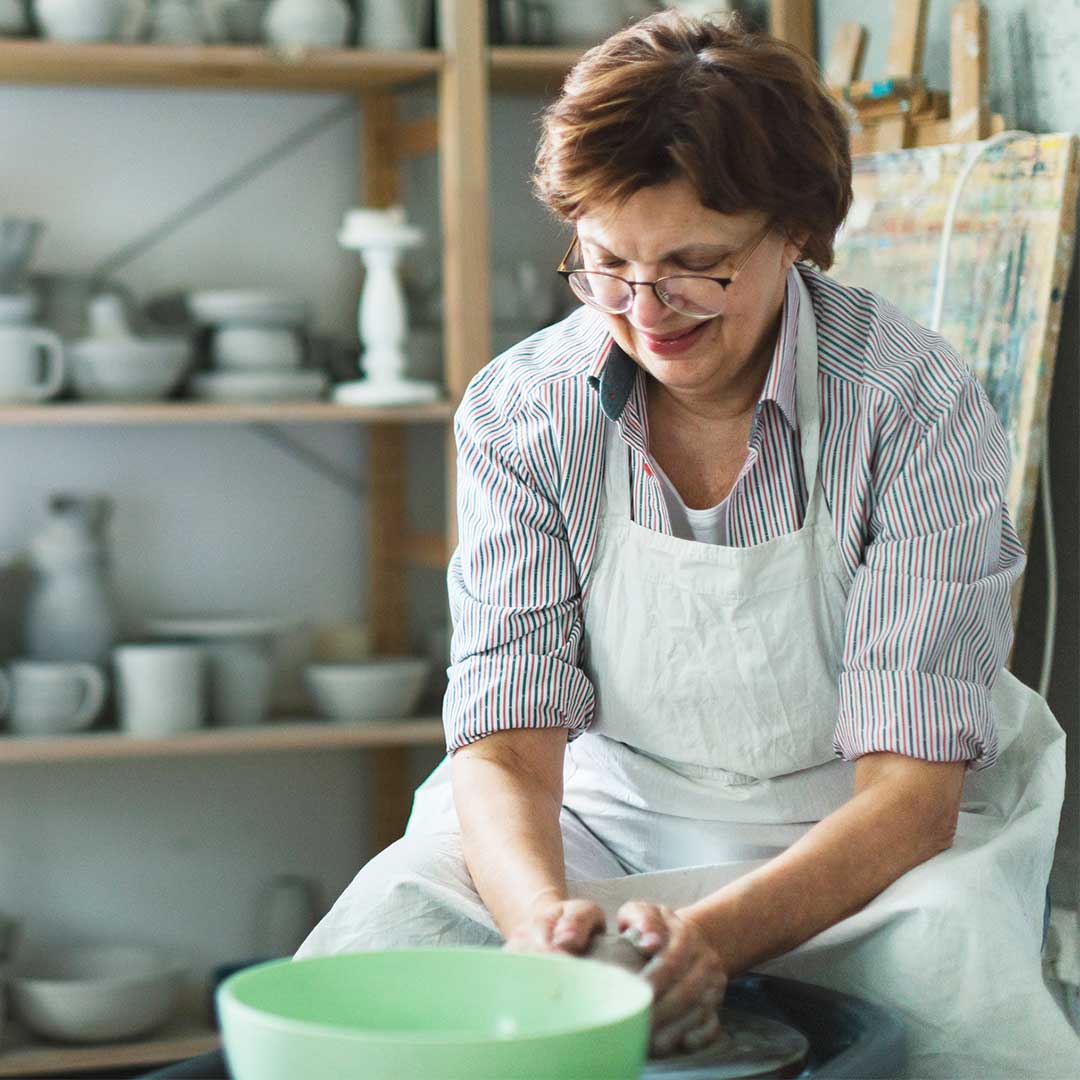The bond between a mother-daughter duo in the highlands of Brazil has strengthened the family and brought a generations-old coffee farm into the 21st century, bringing their coffee to homes across America through a partnership with Westrock Coffee.

This mother’s role on her family farm brings to life the traditions that connect people across time and cultures through coffee.
Dona Alayde is a coffee farm located in the city of Carmo da Cachoeira, situated in the southern part of the Brazilian state of Minas Gerais and nestled in a beautiful region made up of mountains and fertile soils. It is a total area of 200 hectares—mostly coffee plantations, along with conservation areas, environmental reserves, and untouched pastures.
“One of the most important relationships we’ll ever have is the relationship we have with our mothers.” —Iyanla Vanzant
In an interview with Artur Ornelas of the Minasul cooperative, Priscila Nogueira shared how she inherited this farm after the premature death of her father when he was 52 years old. At only 18 years of age, Priscila said she had to understand that, even more so than working hard and making sure the farm remained profitable, she had the responsibility of conserving her family’s heritage and carrying on their traditions.

Priscila says her father was a great man who, in the 20th century, made the forward-thinking decision to recruit Italian immigrants to work on his lands, rejecting cheaper and unethical forms of farm labor. His belief in his workforce and cooperativism led him to found what is known today as Minasul, or the Cooperativa Dos Cafeicultores da Zona de Varginha LTDA. Priscilla claims that her father planted in the bosom of their family a love and commitment to coffee cultivation.
Nowadays, Priscila’s daughter, Amanda, runs the farm alongside her mother and helps to keep the love for coffee production running in the family. These two women say that they, together, are always looking for the best ways to produce a quality natural coffee while also working with enthusiasm, respecting labor laws, preserving the environment, facing the inclement nature of the weather, and dealing with the ups and downs of the coffee market.
At Dona Alayde today, the entire production process is executed within the most rigorous quality and traceability standards. Across the farm, coffee growing procedures comply with social and environmental standards and are audited by multiple certifiers. The guidelines on maintenance, fertilization, and harvest are monitored by trained agronomists who make up the farm’s technical staff. Through soil and leaf analyses of the coffee crops, Dona Alayde seeks the best formula for fertilizers that simultaneously meets the cost-benefit criterion and focuses on the sustainability of the property.
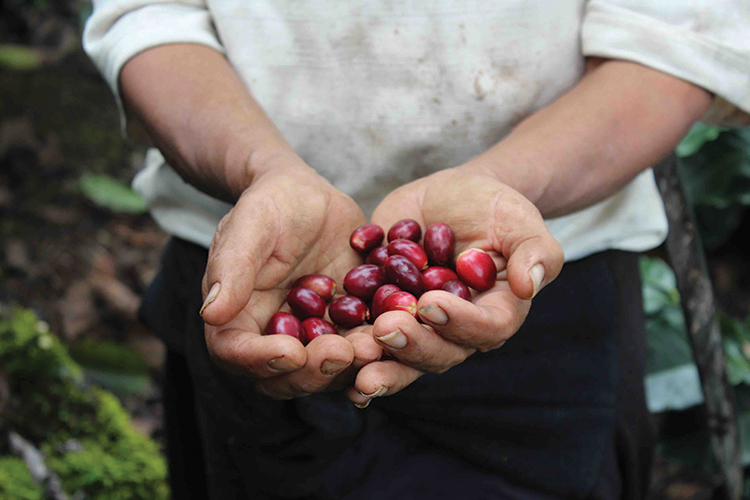
The Dona Alayde farm is highly productive and has crops of the varieties Mundo Novo, Acaiá, Catuaí, yellow Catucaí, and yellow Bourbon. In Minas Gerais, the special conditions of the climate, soil, and altitude combined create soft, bittersweet coffees with a low acidity and a nutty taste. This coffee varies from its western neighbors in Peru, which typically produces mellow and pleasant coffees with a mild acidity and a light body. More different still are coffees from even farther away in East African countries such as Kenya and Rwanda where coffees assume vivid floral, fruit, and wine tones with a rich acidity.
Just as environmental factors, plant varieties, and coffee taste notes vary, so do the characteristics of each coffee growing community. For example, Brazil has maintained its position as a highly developed coffee producing origin since the 19th century. According to the USDA, Brazil produced 60.2 million 60-kilogram bags of green coffee in the 2018/2019 harvest season. This is an increase of 9.3 million bags from the previous crop, making 2019 a record-breaking year for the country.
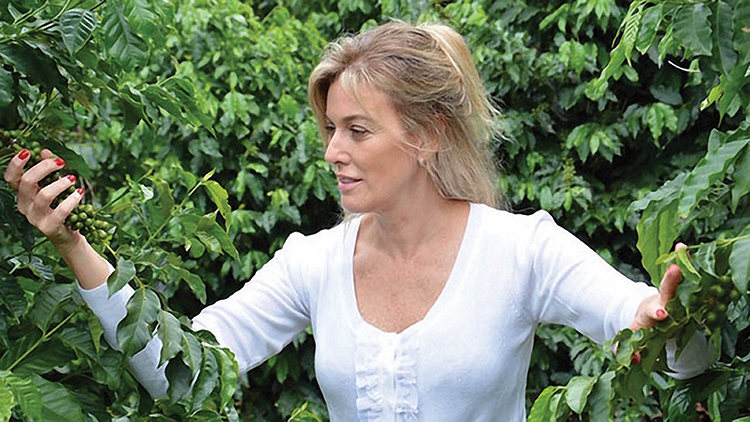
Meanwhile, Rwanda is a market made up of smallholder farmers who each operate on an average of less than 1 hectare of coffee growing land and share the services of centralized wet-mills, locally known as washing stations. In recent years, coffee has been used as a vehicle for positive change in Rwanda. Today, it is now rightly heralded as a top producer of fine specialty coffees.
Although the nature of each coffee growing community is different, emphasis on hard work and respect for family traditions remain ever present across the globe. Mothers often play the role of culture keepers in any given household, and even grandmothers and great-grandmothers have a huge influence on the way a family unit operates, helping to develop a strong foundation of family traditions that will remain stable for generations to come.
“The more a daughter knows the details of her mother’s life, the stronger the daughter.” —Anita Diamant
The bond between a mother-daughter duo in the highlands of Brazil has strengthened the family and brought a generations-old coffee farm into the 21st century, bringing their coffee to homes across America through a partnership with Westrock Coffee.

This mother’s role on her family farm brings to life the traditions that connect people across time and cultures through coffee.
Dona Alayde is a coffee farm located in the city of Carmo da Cachoeira, situated in the southern part of the Brazilian state of Minas Gerais and nestled in a beautiful region made up of mountains and fertile soils. It is a total area of 200 hectares—mostly coffee plantations, along with conservation areas, environmental reserves, and untouched pastures.
“One of the most important relationships we’ll ever have is the relationship we have with our mothers.” —Iyanla Vanzant
In an interview with Artur Ornelas of the Minasul cooperative, Priscila Nogueira shared how she inherited this farm after the premature death of her father when he was 52 years old. At only 18 years of age, Priscila said she had to understand that, even more so than working hard and making sure the farm remained profitable, she had the responsibility of conserving her family’s heritage and carrying on their traditions.

Priscila says her father was a great man who, in the 20th century, made the forward-thinking decision to recruit Italian immigrants to work on his lands, rejecting cheaper and unethical forms of farm labor. His belief in his workforce and cooperativism led him to found what is known today as Minasul, or the Cooperativa Dos Cafeicultores da Zona de Varginha LTDA. Priscilla claims that her father planted in the bosom of their family a love and commitment to coffee cultivation.
Nowadays, Priscila’s daughter, Amanda, runs the farm alongside her mother and helps to keep the love for coffee production running in the family. These two women say that they, together, are always looking for the best ways to produce a quality natural coffee while also working with enthusiasm, respecting labor laws, preserving the environment, facing the inclement nature of the weather, and dealing with the ups and downs of the coffee market.
At Dona Alayde today, the entire production process is executed within the most rigorous quality and traceability standards. Across the farm, coffee growing procedures comply with social and environmental standards and are audited by multiple certifiers. The guidelines on maintenance, fertilization, and harvest are monitored by trained agronomists who make up the farm’s technical staff. Through soil and leaf analyses of the coffee crops, Dona Alayde seeks the best formula for fertilizers that simultaneously meets the cost-benefit criterion and focuses on the sustainability of the property.

The Dona Alayde farm is highly productive and has crops of the varieties Mundo Novo, Acaiá, Catuaí, yellow Catucaí, and yellow Bourbon. In Minas Gerais, the special conditions of the climate, soil, and altitude combined create soft, bittersweet coffees with a low acidity and a nutty taste. This coffee varies from its western neighbors in Peru, which typically produces mellow and pleasant coffees with a mild acidity and a light body. More different still are coffees from even farther away in East African countries such as Kenya and Rwanda where coffees assume vivid floral, fruit, and wine tones with a rich acidity.
Just as environmental factors, plant varieties, and coffee taste notes vary, so do the characteristics of each coffee growing community. For example, Brazil has maintained its position as a highly developed coffee producing origin since the 19th century. According to the USDA, Brazil produced 60.2 million 60-kilogram bags of green coffee in the 2018/2019 harvest season. This is an increase of 9.3 million bags from the previous crop, making 2019 a record-breaking year for the country.

Meanwhile, Rwanda is a market made up of smallholder farmers who each operate on an average of less than 1 hectare of coffee growing land and share the services of centralized wet-mills, locally known as washing stations. In recent years, coffee has been used as a vehicle for positive change in Rwanda. Today, it is now rightly heralded as a top producer of fine specialty coffees.
Although the nature of each coffee growing community is different, emphasis on hard work and respect for family traditions remain ever present across the globe. Mothers often play the role of culture keepers in any given household, and even grandmothers and great-grandmothers have a huge influence on the way a family unit operates, helping to develop a strong foundation of family traditions that will remain stable for generations to come.
“The more a daughter knows the details of her mother’s life, the stronger the daughter.” —Anita Diamant






